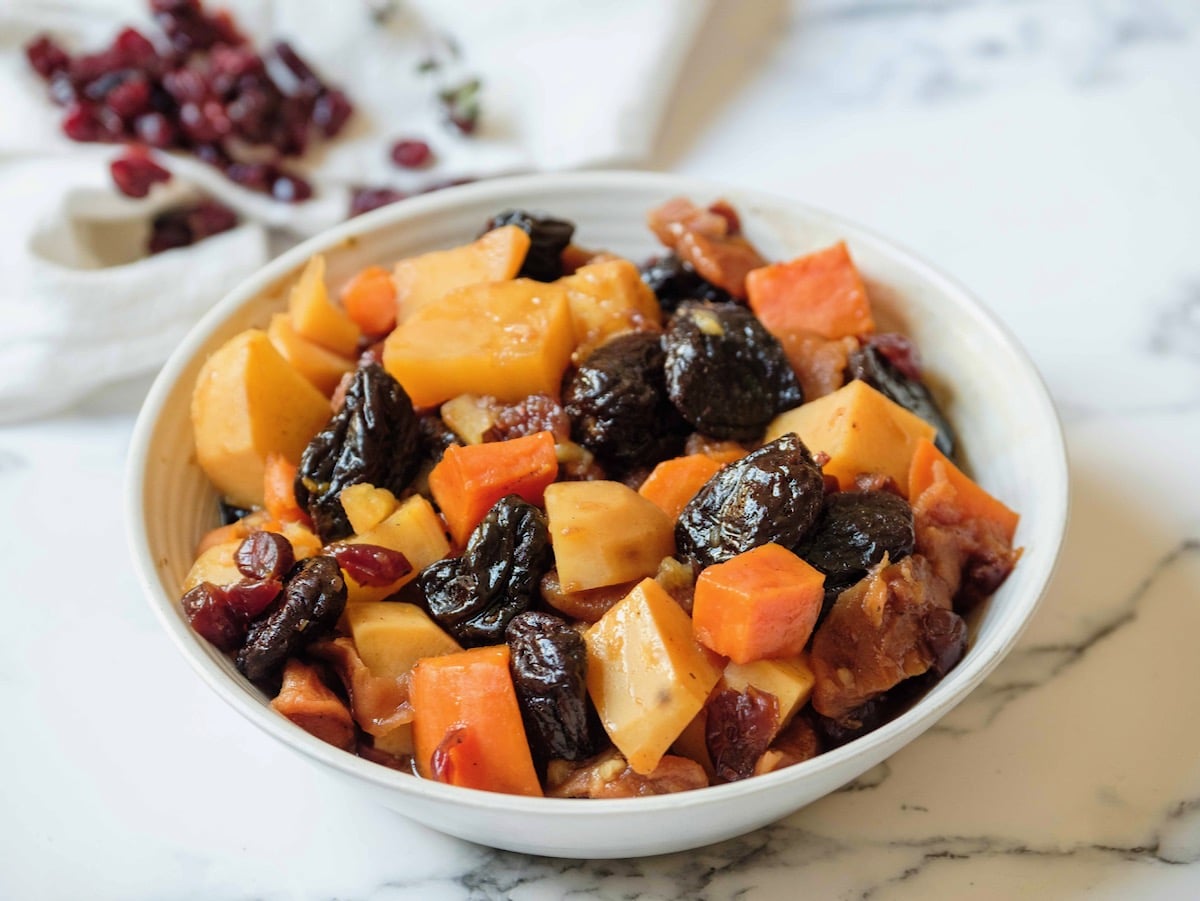Japanese Breakfast is the whimsical moniker of an American shoegaze-pop band I have been following for some time. Somehow the band and their wonderful lead singer Michelle Zauner have escaped this blog's musings until now.
I was lucky enough to get a close look at Zauner when she graced the Pitchfork Music Festival stage in Chicago this past summer. She is a magnetic performer, dressed in her trademark Miu Miu shoes and a top seemingly tailored out of someone's beloved childhood stuffed poodle. It was a monumental outfit.
As Zauner belted out dreamy lyrics about the diving women of Jeju Island and memories of her departed mother, I noticed a fan in front of me waving around a book with a red cover. It was a cover I had seen before - Crying in H Mart by Michelle Zauner. Please understand that while I had seen this book before - as a lover of Korean food and frequenter of my own H Mart back home in Richmond Hill, I didn't realize it had been written by Japanese Breakfast, creator of so many moody and earworm-esque tunes in my playlists. That'll teach me to like a band without knowing the names of the members.
I suppose I also didn't realize that someone who was so musically talented (and intensely fashionable) could also be gifted enough to write a NYT bestseller memoir. Thus began my wonderment at all the amazing facets that are Zauner. She had also partnered with Chicago's Goose Island brewery to create a persimmon beer for the festival, and created an amazing soundtrack for indie video game Sable.
But this post is largely about the many feels found inside the red-covered book flailing in the hand of the fan in front of me this past summer. Said book is also apparently being made into a movie. That I can't wait to see. Crying in H Mart is a memoir of a very specific flavour, displayed on the cover in the form of a delectable amount of noodles. The book revolves around the youth and experiences of Zauner through childhood and the eventual passing of her mother in her early fifties. This is outlined at the start of the book in a very honest and earnest way, in a tone I have rarely heard during moments of loss in my life. Zauner expresses envy of the mother-child relationships she sees in other patrons of her local H Mart, which I found to be very real, endearing, and had me in tears in moments after cracking the book for the first time.
Zauner's writing of her relationship with her mother reminds me of the one I have with my mother in some ways, again perhaps because her tone feels so honest like she is pouring out her soul onto the page. From the reader view it seems like she had a difficult childhood living up to the standards of her mother, who only wanted the best for her but expressed her love in non-normative ways. Zauner recounts in wistful moments of the book that her relationship with her mother was at its best before her mother's untimely illness struck, and had it not struck, they might have gone on to share a better relationship as two adults. For my own honesty and because my mother may read this at some point, let the record state that I think our mother-daughter relationship is at its best in my adult years, and this created a force of empathy that I felt for Zauner through my reading.
I would be remiss to get this far into the review without talking about the food of it all. Having lived in Toronto's Koreatown for six delicious years, I was delighted at every turn of Zauner's descriptions of Korean dishes mixed in with her memories of making or eating them. The connection she must feel between food and culture (going by these descriptions) is something I find reminiscent in my own upbringing in a Reform Jewish household and the traditions of many Jewish foods. To me it is something that guides a sort of mixing of past and present, honouring one's traditions and ancestors, and telling a story or communicating an emotion through the senses of touch and taste.Zauner expresses in some moments of the book that she wishes she had learned more of her mother's Korean cooking before her passing and mentions that she did get to learn some aspects from other elders in her life. What stuck out to me was her discovery of Maangchi's series of Youtube videos on Korean cooking. Immediately after watching the intro to just one video, I felt this woman's motherliness wash over me.


.jpg)

No comments:
Post a Comment
Note: Only a member of this blog may post a comment.